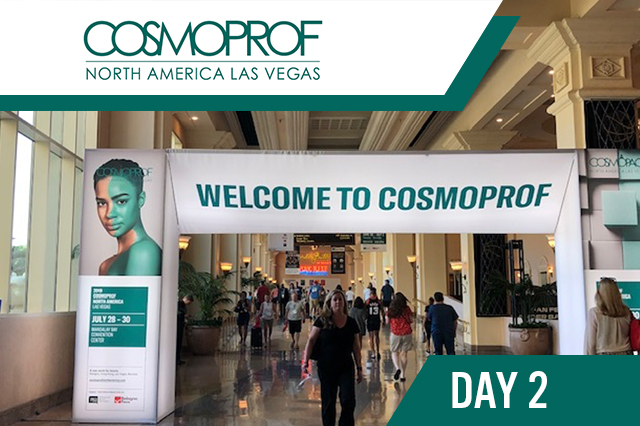
albert Chan
The Coresight Research team is in Las Vegas this week attending Cosmoprof North America 2019, the leading B2B beauty trade show in North America.
On day two, the Coresight Research team attended numerous expert sessions and connected with brand owners to uncover the newest product trends.
These are the key insights from day two:
1. Brands are aiming to go “zero waste” by reducing packaging. Several sessions over days one and two highlighted the role of cutting packaging in reducing the amount of waste going into landfill. Consumers are demanding this. BeautyStreams, a global trend and forecasting agency, showcased that waste is coming to be considered a “design flaw” that the emerging circular economy aspires to eliminate. As consumers pay more attention to their impact on the planet, brands are working to find ways to reduce, reuse, repurpose, upcycle and transform waste into a usable commodity. Major brands such as Unilever and L'Oréal have already pledged to use to use 100% recyclable, reusable and compostable plastic by 2025 and vegetarian beauty retailer Lush has opened a packaging free “Naked Shop” in the UK, free from plastic. 2. Innovative beauty brands are minimizing packaging, creating biodegradable solutions and rethinking product designs. BeautyStreams highlighted innovative Cosmoprof brands championing zero-waste initiatives both by re-tooling the original product design and by embracing new packaging solutions. Here are a few interesting examples of the many companies we saw showcasing their sustainability credentials:- Daily Concepts Bio-Cotton Makeup Removers are reusable makeup removers sold with a laundry bag. Just add a small amount of warm water, remove makeup, wash the remover pad and use again – dramatically reducing waste over single-use makeup remover pads.
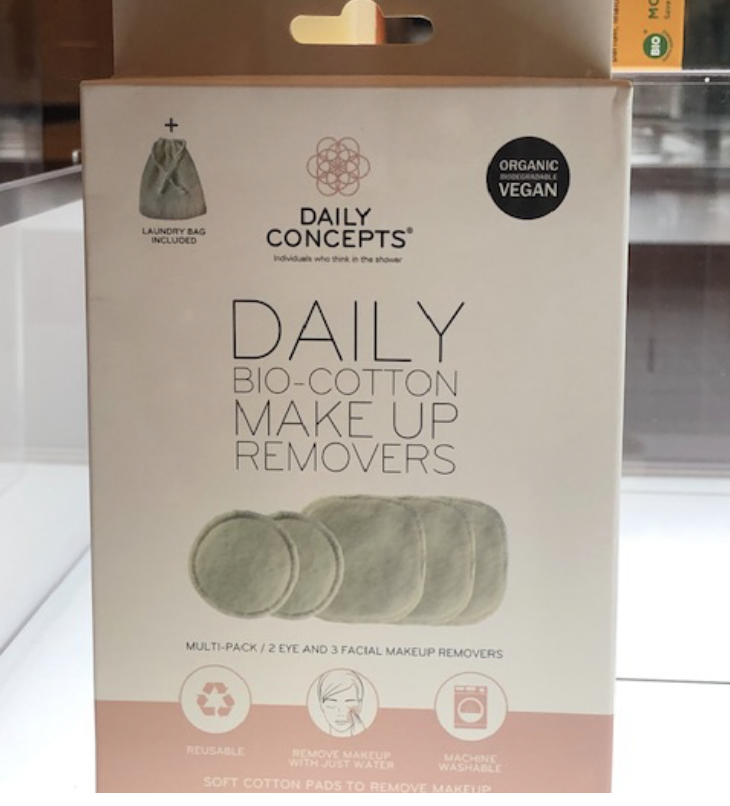 Daily Concepts Daily Bio-Cotton Makeup Removers
Daily Concepts Daily Bio-Cotton Makeup RemoversSource: Coresight Research[/caption]
- The Vegan Glow Good Morning Cream is a Korean vegan day cream designed to minimize the potential for a skin reaction. The packaging is made from recycled paper and printed using soy ink.
- Foamie Shampoo Bar Aloe You Vera Much is a solid shampoo bar, challenging the traditional product design. The product is made in Germany, is vegan and dermatologically-tested.
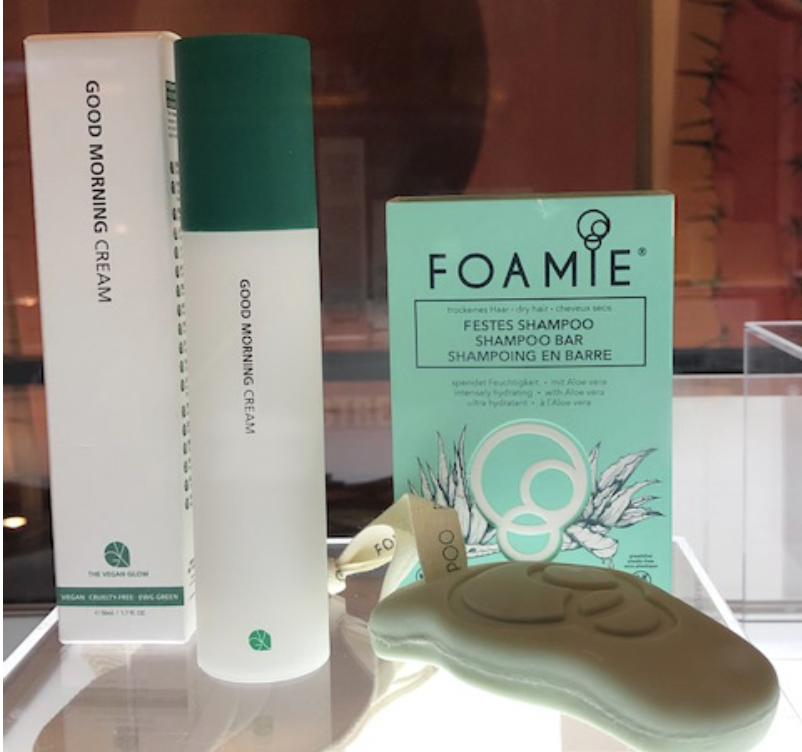 The Vegan Glow Good Morning Cream, Foamie Shampoo Bar Aloe You Vera Much
The Vegan Glow Good Morning Cream, Foamie Shampoo Bar Aloe You Vera MuchSource: Coresight Research[/caption] 3. CBD in beauty and personal care is taking off: In the US, Gen Xers are most interested in BPC products with CBD or hemp and 56% of consumers cited medicinal value as a selling point. The most revealing information came during a panel discussion on “CBD & Beauty: the Next Five Years.” Denise Herich, Cofounder and Managing Partner at the Benchmarking Company presented results from two surveys that reached over 7,000 women globally. According to the survey, US Gen Xers are the most willing to try beauty and personal care products made with hemp or containing CBD at 77%, followed by millennials at 74%, Gen Zers at 68%, and baby boomers at 67%. Currently, 18% of US consumers currently use or have used beauty and personal care products that are cannabis-derived or contain hemp seed, hemp oil or CBD. [caption id="attachment_93806" align="aligncenter" width="700"]
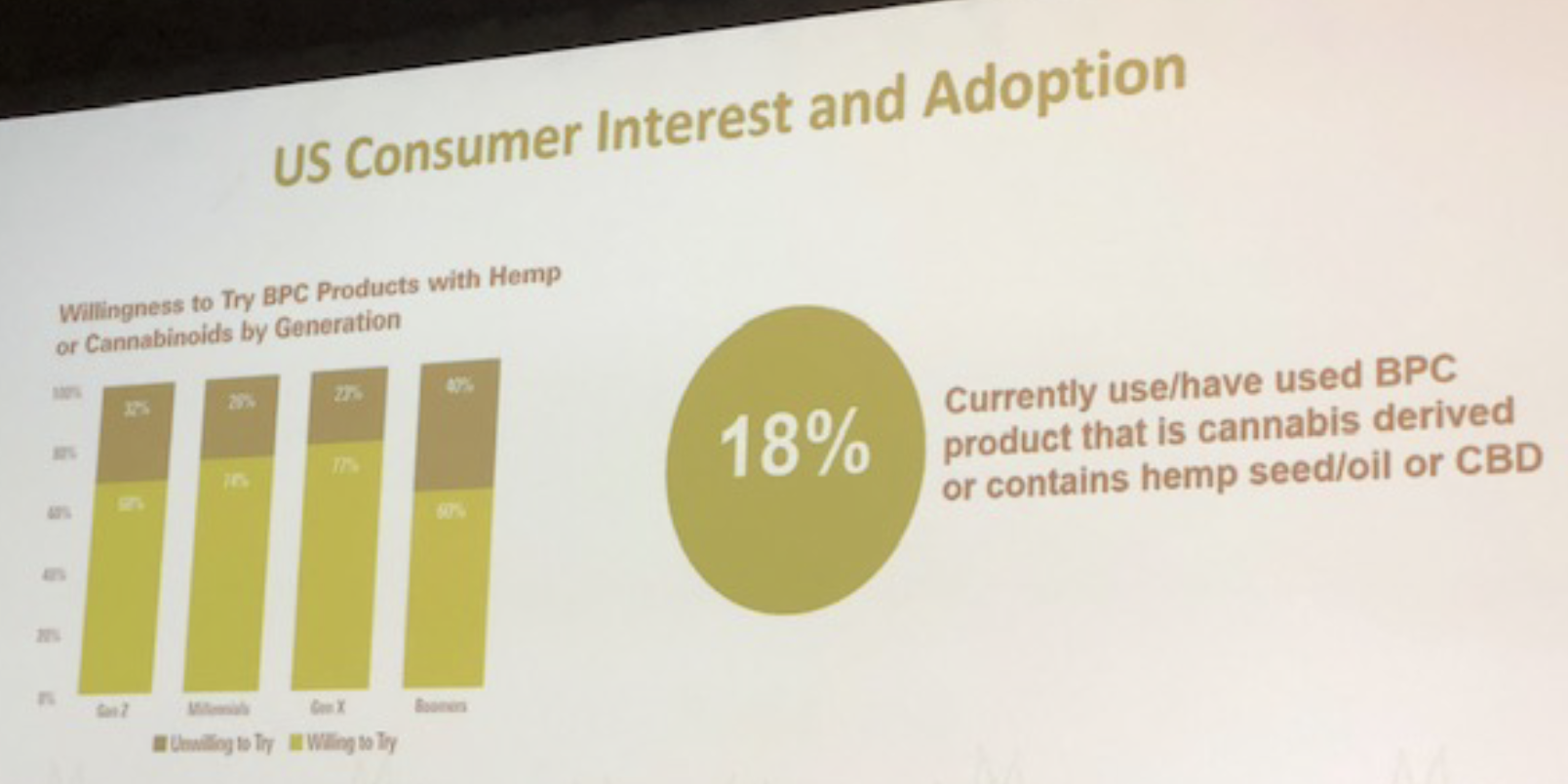 The Benchmarking Company results from two research studies, TBC’s 2018 Pink Report The New Age of Naturals and a report with insights from 7,000 women globally
The Benchmarking Company results from two research studies, TBC’s 2018 Pink Report The New Age of Naturals and a report with insights from 7,000 women globallySource: Coresight Research[/caption] According to the company’s second survey conducted in February 2019, 56% of respondents cited medicinal value as a selling point for cannabis, up from 38% in May 2018. [caption id="attachment_93807" align="aligncenter" width="700"]
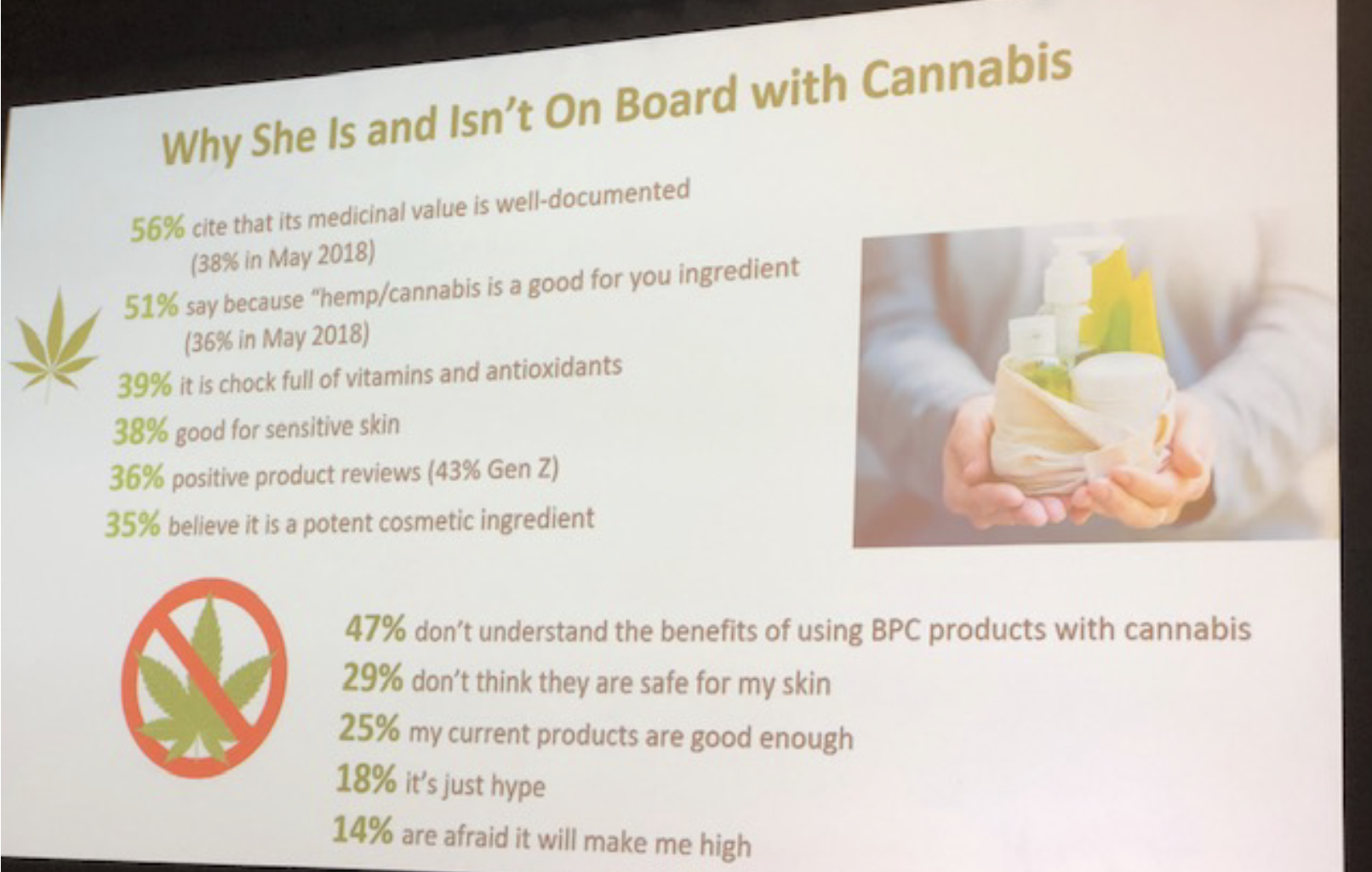 The Benchmarking Company results from two research studies, TBC’s 2018 Pink Report The New Age of Naturals and a report with insights from 7,000 women globally
The Benchmarking Company results from two research studies, TBC’s 2018 Pink Report The New Age of Naturals and a report with insights from 7,000 women globallySource: Coresight Research[/caption] 4. All retailers want in on CBD: Luxury and premium products are leading the way. Speaking on the same panel, Stephen Letourneau, Chief Brand Officer, Cannuka, a premium skincare brand that combines CBD with Manuka honey, asserted the cannabis industry is moving dramatically and more quickly than any other industry, even though regulations still impact how products are marketed and sold.
“All the retailers want in on CBD,” said Letourneau. “The market is demanding these products are available. Retailers that wouldn’t talk to you six months ago are flying you out today.” He credited Sephora for working diligently for years to trailblaze to make the products available. He added that Neiman Marcus was an early innovator in the space, and added that even mainstream QVC has asked for product samples.
According to The Benchmarking Company research survey conducted in February 2019, 39% of respondents purchase cannabis infused or derived beauty and personal care products directly from the brands, while 31% purchase products from specialty retailers.
[caption id="attachment_93808" align="aligncenter" width="700"]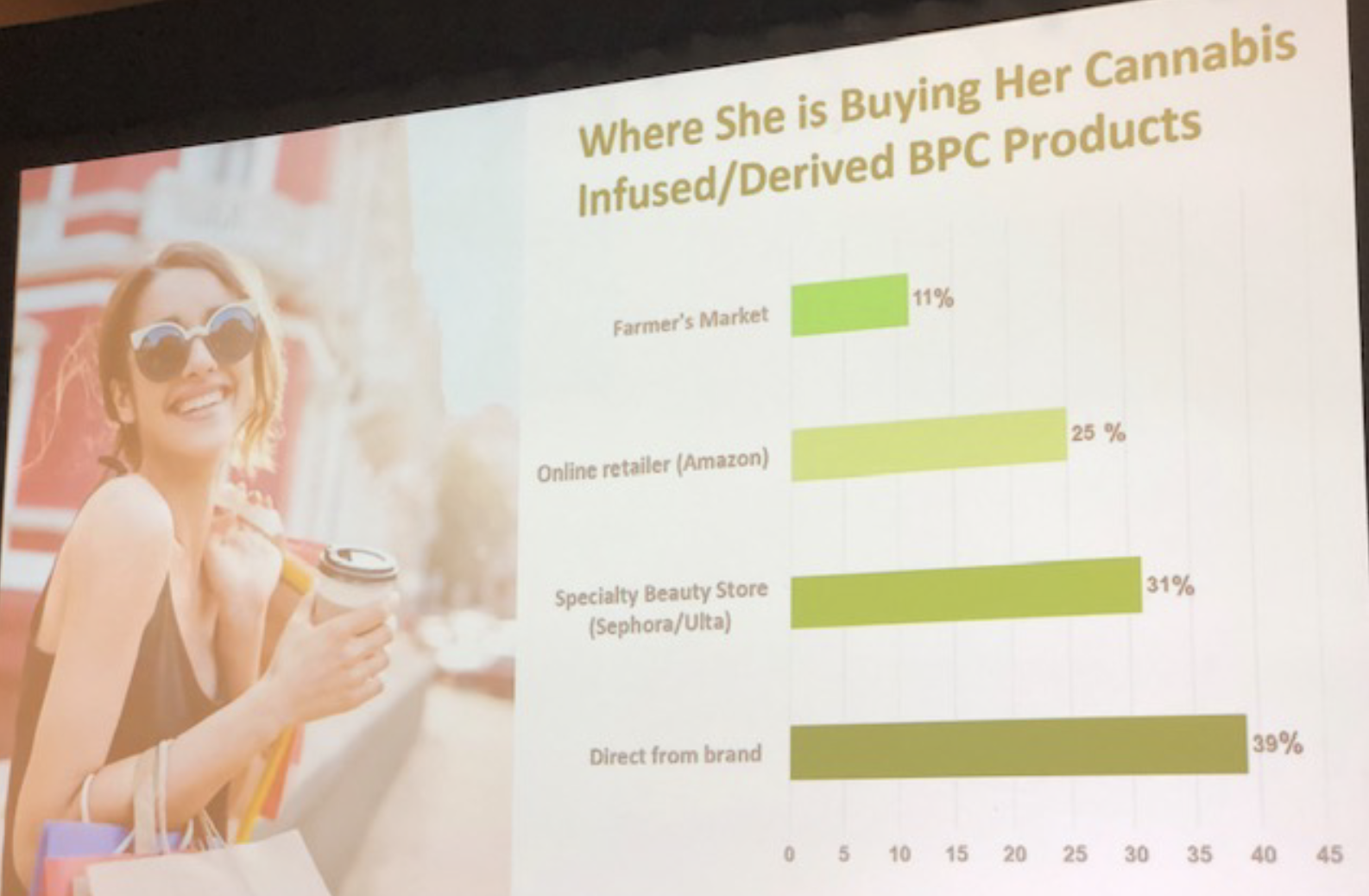 The Benchmarking Company results from two research studies, TBC’s 2018 Pink Report The New Age of Naturals and another report with insights from 7,000 women globally
The Benchmarking Company results from two research studies, TBC’s 2018 Pink Report The New Age of Naturals and another report with insights from 7,000 women globallySource: Coresight Research[/caption] 5. The mobile device is usually the first place a new brand is discovered: Facebook encourages brands to be “mobile first and mobile best.” Allison Hersh Pace, Industry Manager of Beauty, Facebook says the average person scrolls through 300 feet of feed on the mobile device every day, nearly the height of the Statue of Liberty. Today, new brands are discovered on a mobile device first: A brand’s feed has to be creative and noticeable. Second, it has to be rewarding for consumers: There has to be a compelling reason for the consumer to stop and look.
Facebook launched a resource for brands to see what other brands and retailers are doing for inspiration. And, brands experimenting with creative ideas internally should make sure they do so via mobile devices and not on desktops: Mobile is where the experience will take place, brands should evaluate the experience where it will happen.
Jenna Romero, Director of Social Media and Influencer Marketing at Winky Lux emphasized the importance of frequent posting. While there is no secret sauce for how often, companies can test, learn and iterate to fine tune messaging and cadence to resonate with consumers.
[caption id="attachment_93809" align="aligncenter" width="700"]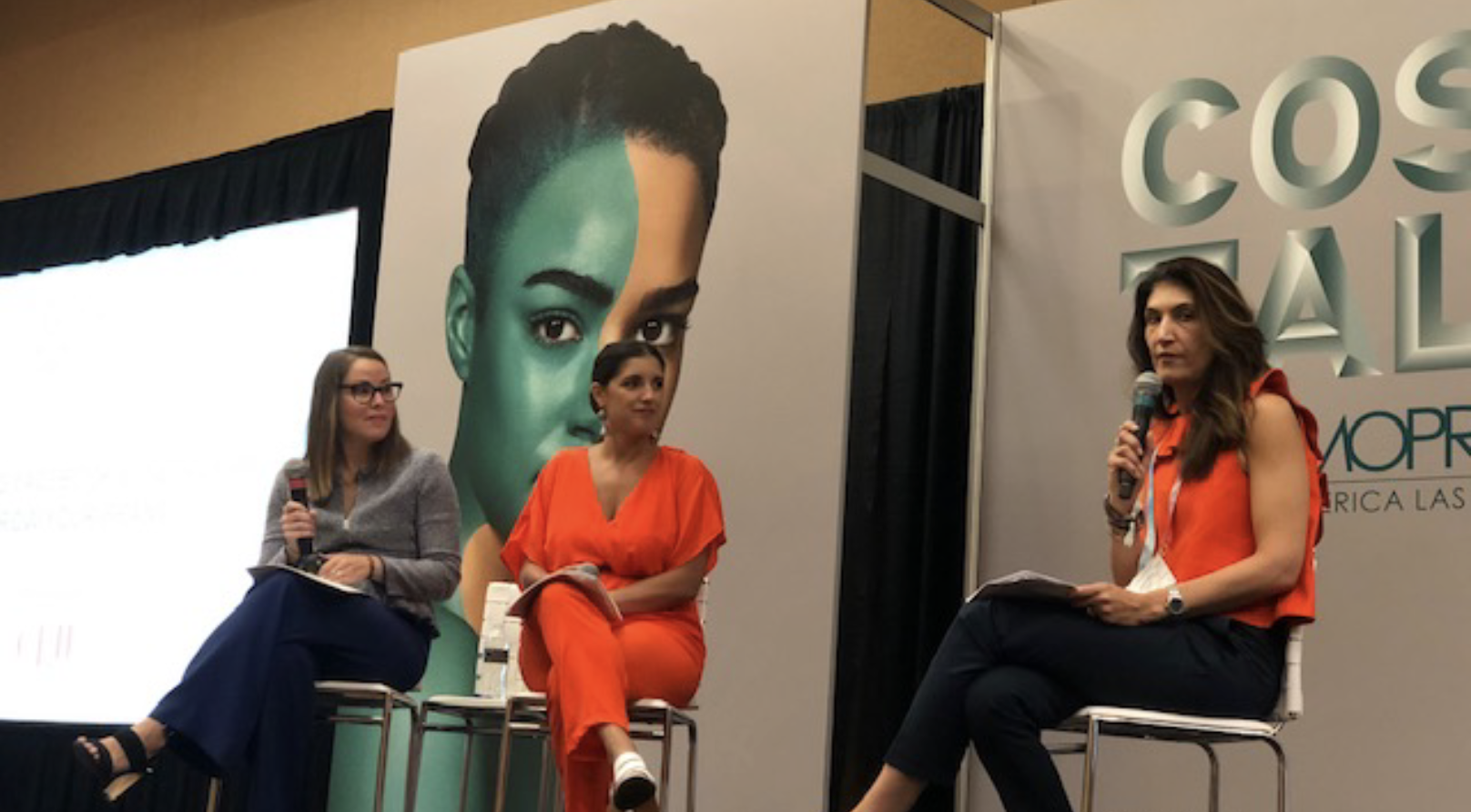 (L to R) Allison Hersh Pace, Industry Manager of Beauty, Facebook; Jenna Romero, Director of Social Media and Influencer Marketing, Winky Lux; Andrea Nagel, Vice President of Content, CEW
(L to R) Allison Hersh Pace, Industry Manager of Beauty, Facebook; Jenna Romero, Director of Social Media and Influencer Marketing, Winky Lux; Andrea Nagel, Vice President of Content, CEWSource: Coresight Research[/caption]